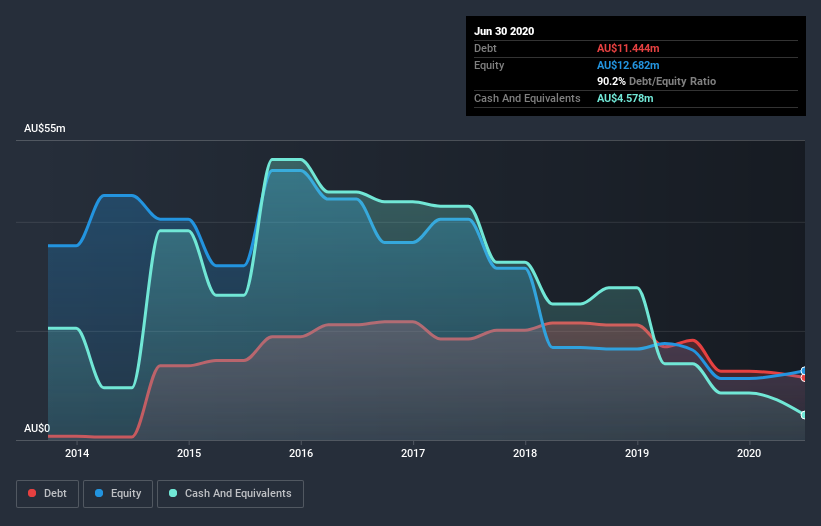Did The Underlying Business Drive Bionomics' (ASX:BNO) Lovely 310% Share Price Gain?

While some are satisfied with an index fund, active investors aim to find truly magnificent investments on the stock market. When an investor finds a multi-bagger (a stock that goes up over 200%), it makes a big difference to their portfolio. For example, the Bionomics Limited (ASX:BNO) share price is up a whopping 310% in the last year, a handsome return in a single year. Also pleasing for shareholders was the 119% gain in the last three months. This could be related to the recent financial results, released recently - you can catch up on the most recent data by reading our company report. In contrast, the longer term returns are negative, since the share price is 66% lower than it was three years ago.
See our latest analysis for Bionomics
We don't think Bionomics' revenue of AU$3,192,546 is enough to establish significant demand. As a result, we think it's unlikely shareholders are paying much attention to current revenue, but rather speculating on growth in the years to come. For example, they may be hoping that Bionomics comes up with a great new product, before it runs out of money.
As a general rule, if a company doesn't have much revenue, and it loses money, then it is a high risk investment. There is almost always a chance they will need to raise more capital, and their progress - and share price - will dictate how dilutive that is to current holders. While some such companies do very well over the long term, others become hyped up by promoters before eventually falling back down to earth, and going bankrupt (or being recapitalized). Bionomics has already given some investors a taste of the sweet gains that high risk investing can generate, if your timing is right.
Bionomics had liabilities exceeding cash by AU$17.2m when it last reported in June 2020, according to our data. That puts it in the highest risk category, according to our analysis. So the fact that the stock is up 58% in the last year shows that high risks can lead to high rewards, sometimes. It's clear more than a few people believe in the potential. You can see in the image below, how Bionomics' cash levels have changed over time (click to see the values).
It can be extremely risky to invest in a company that doesn't even have revenue. There's no way to know its value easily. One thing you can do is check if company insiders are buying shares. If they are buying a significant amount of shares, that's certainly a good thing. You can click here to see if there are insiders buying.
A Different Perspective
It's good to see that Bionomics has rewarded shareholders with a total shareholder return of 310% in the last twelve months. That certainly beats the loss of about 11% per year over the last half decade. We generally put more weight on the long term performance over the short term, but the recent improvement could hint at a (positive) inflection point within the business. It's always interesting to track share price performance over the longer term. But to understand Bionomics better, we need to consider many other factors. Like risks, for instance. Every company has them, and we've spotted 5 warning signs for Bionomics (of which 1 is concerning!) you should know about.
If you are like me, then you will not want to miss this free list of growing companies that insiders are buying.
Please note, the market returns quoted in this article reflect the market weighted average returns of stocks that currently trade on AU exchanges.
This article by Simply Wall St is general in nature. It does not constitute a recommendation to buy or sell any stock, and does not take account of your objectives, or your financial situation. We aim to bring you long-term focused analysis driven by fundamental data. Note that our analysis may not factor in the latest price-sensitive company announcements or qualitative material. Simply Wall St has no position in any stocks mentioned.
Have feedback on this article? Concerned about the content? Get in touch with us directly. Alternatively, email editorial-team@simplywallst.com.

 Yahoo Finance
Yahoo Finance 
